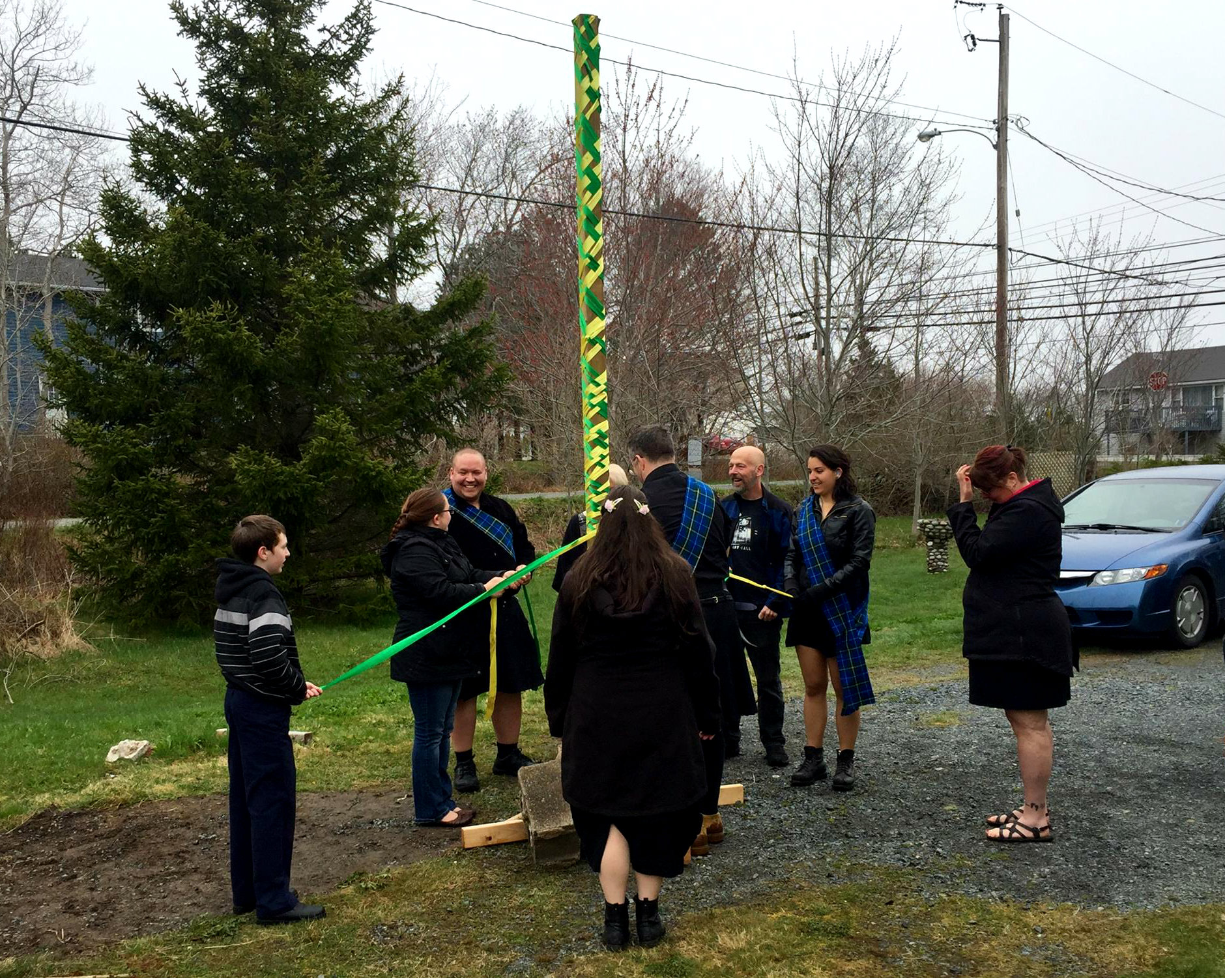Beltane, a personal reflection
This year’s Beltane ritual was my first experience at holding the lead position in a major ritual. Not being accustomed to speaking in front of people, I was fairly nervous going into it, but also looked forward to the experience and the chance to face my fears and the challenge head on. Doing my due diligence, I researched the gods and goddesses associated with this festival, settling on the Welsh goddess Creiddylad and the Irish god Belanus. These deities both seemed to call to me. Belanus being the more obviously associated, being the namesake of Beltane — Bel (Belanus) and tane meaning fire — but also Creddylad, being the goddess of flowers and love and the daughter of the sea god Lir. These two gods seemed to balance and compliment one another like the best relationships seem to do, and being a traditional festival in which to hold marriage ceremonies, this seemed appropriate.

The ritual was going as well as could be expected, given that it was a cold and cloudy day. The rain held off, which was a god sent (pun intended). It was even a bit inspiring seeing the mist of my own breath escaping my lips. Images of the mists of Avalon jumped to mind briefly. Thankfully, I was able to project my lines for all to be able to hear, as that was a concern for me, being a quiet spoken individual by nature.
When the first Ogam was drawn —Blackthorn (“Wounding”) for the Omen— we were all a bit thrown. Were the gods displeased? We didn’t forget any of the offerings. We didn’t skip over anything vital. Why were the gods showing their displeasure at our gifts? So, adding a couple of more offerings to the fire, we drew another Ogam. This time, Yew (“Transition”) was drawn. A little better (and upon later reflection, explaining much). We were all relieved when, in return, the gods blessed us with the Ogam of Apple (“Wholeness”).
I must admit, I was rather thrown in the moment by what had been drawn. I even shed a few tears, but recovered enough to enjoy the maypole dance and other festivities, and then to close the ritual properly. Over the next couple of days, I reflected on the Ogams that we drew, and read over their meanings in greater depth. Blackthorn, although quickly translated to “Wounding”, also “offers initiation into the mysteries of self-conquest and transcendence”. Yew’s main translation, “Transition”, is also known for “transformation, renewal, (and) rebirth. An opening, a new element approaching.” Looking further into Apple was interesting as well. Not only was it’s basic meaning “Wholeness”, a very good blessing indeed to receive from the gods, but also a deep connection to the universe. While reading the section on Apple, a few more unexpected connections popped up. “The apple tree in Celtic myth is associated with Avalon, the Island of Apples,” where King Arthur is said to have gone to heal from “grievous wounds”. Belanus, the festival of Beltane, and the Son of Lir were all also mentioned within Apple’s explanation. The interconnections at play were numerous. Since thoughts of the mists of Avalon had come to mind due to the chill in the air and seeing my breath at the very start of the ritual, it being mentioned in the Apple’s texts was fascinating. For a connection to then appear for both of the deities that I had chosen to call upon, Beltane directly and Creiddylad, daughter of the sea god Lir (and therefore sister of the son of Lir), well, I must say, it felt as if the gods were definitely working their magic.
So, looking at the Ogams drawn for the Omens and Blessings received from the gods, I think that their combined meanings tells a larger story. We may all be wounded in many ways (Blackthorn, wounding), but it is through the healing (Yew, transition) of those wounds that we can become whole again (Apple, wholeness). It’s the point of the human experience really. The greatest lessons in life are often the result of the healing process from traumatic life experiences. This time of year, when the flowers spring forth from the ground and love is in the air, this is a time for transformation and rebirth. A reminder to let go of old wounds and to transition into wholeness. To learn from our experiences and become wholly who we are meant to become, both individually and as a grove.
So say we all.
-Written by Lily M.
(Quotes all taken from Ogam: the Celtic Oracle of the Trees by Paul Rhys Mountfort.)
**photocred: Karen





